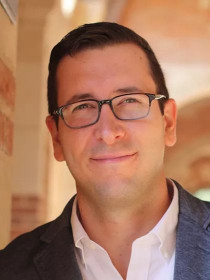
Edward Walker
Connect with Edward
About Edward
Walker's research investigates the mobilization and outcomes of advocacy both by social movement organizations and by business interests. His focus in recent work is on contention surrounding fracking, and, separately, movements to change corporate political disclosure practices. He is author of the book Grassroots for Hire: Public Affairs Consultants in American Democracy.
Contributions
In the News
Publications
Provides a systematic review of the research literature on the strategies firms and industry groups deploy in order to advance their interests. Discusses how these strategies fit into business and broader political contexts.
Bases research upon ethnographic observations of Central Pennsylvania residents. Questions conventional wisdom that what are often seen as "locally unwanted land uses" are, in fact, accurately described as such.
Provides evidence that the anti-fracking documentary "Gasland" both shifted public discourse surrounding fracking and also encouraged communities to protest against the practice. Shows how these protests, in turn, influenced a community's likelihood of enacting a ban or moratorium on fracking.
Shows that there is a strong contextual association between Personal Belief Exemption rates and contexts of medical care, such that schools nearby high densities of family medical doctors tend to have higher Personal Belief Exemption rates. Reflects some combination of physician effects and self-selection.
Examines influences on the charitable giving of corporate foundations associated with the largest firms in health-related industries in the U.S., finding that their giving is influenced by the giving of other non-corporate foundations in the health sector as well as by controversies faced by the foundation’s corporate parent and also the firm’s financial and directorship characteristics.